29th April 2019 Vienna, Austria
Vienna Girlsday: lessons in Styrian dialect and a visit to Burgenland
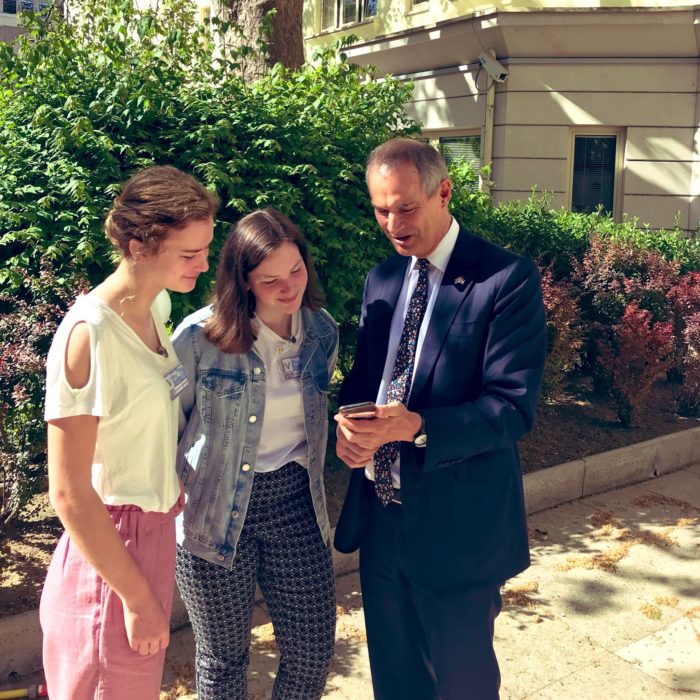
Last week, for the second year running, the British Embassy Vienna took part in the “Vienna Girlsday”. I certainly learned a lot.
The aim of the “Girlsday” (in German it is called “Töchtertag” or “daughters’ day”) is to introduce young women to areas of work where women are under-represented. In the UK in 2019 we now have 48 female Heads of Mission out of 157 posts (31%) – a good increase from 40 out of 150 (27%) as recently as 2016, but still not as many as we would like. So we were keen to take part.
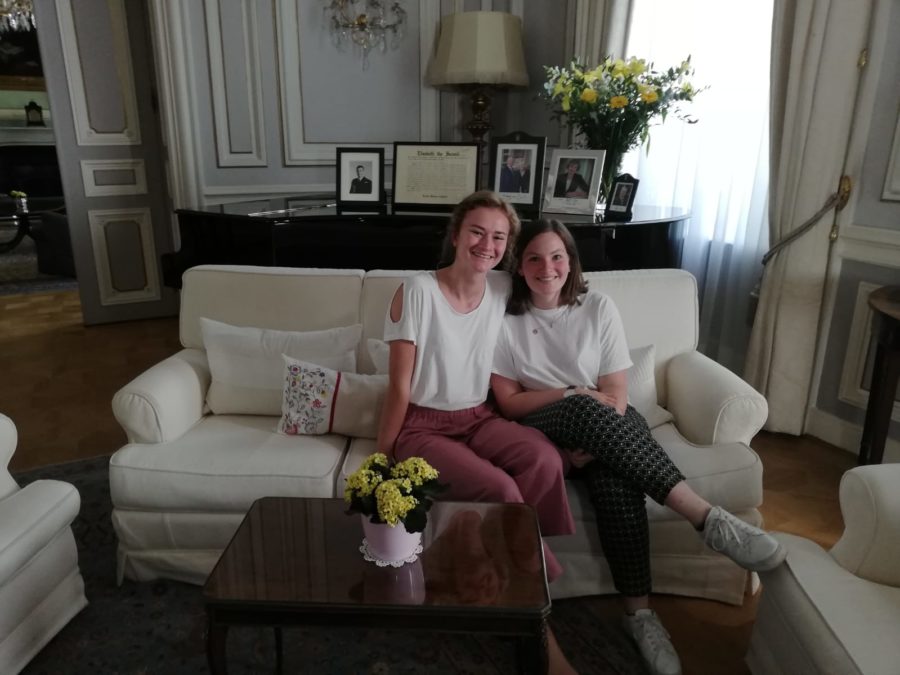
Our participants in this year’s Girlsday were Eli and Hannah, both 15 and from Kapfenberg in Styria. Eli and Hanna didn’t come to my first appointment: joining colleagues from Australia, New Zealand, Ireland, Turkey and others for an ANZAC day commemoration at 5.30 a.m.
The official Girlsday programme kicked off with Eli and Hanna joining an Embassy meeting with colleagues from all sections of our team.
Later, they visited my Residence and met our consular and trade teams to learn about some of the oldest functions of Embassies around the world – looking after our citizens abroad, and promoting trade and investment.
Eli and Hannah taught me some Styrian dialect words. For example ‘often’, which in Styria does not mean ‘frequently’ but ‘then’. Also ‘komod’ which means nice and relaxed, and ‘zach’ which in Styria is a negative term, meaning something like ‘boring’ but in neighbouring Carinthia, confusingly, is a positive expression and means ‘cool’.

In the afternoon the girls accompanied me on a regional visit to Burgenland. In the capital, Eisenstadt, we visited the house of Joseph Haydn. Haydn spent much of his career as a court musician there for the Esterházy family and went on to become immensely popular in Britain.
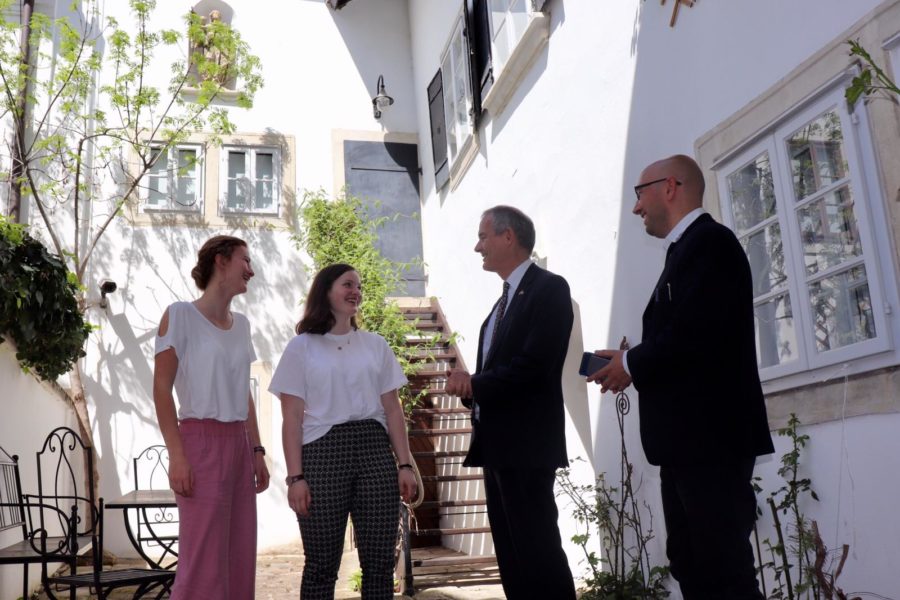
At the Burgenländische Volkszeitung, the local newspaper, the girls watched me give an interview about the latest developments on Brexit; after which we moved on to the Fachhochschule Burgenland (technical college). Founded in 1994, the Fachhochschule has 4,000 Students from 47 countries. I held a Q&A in packed auditorium with students and academic staff.
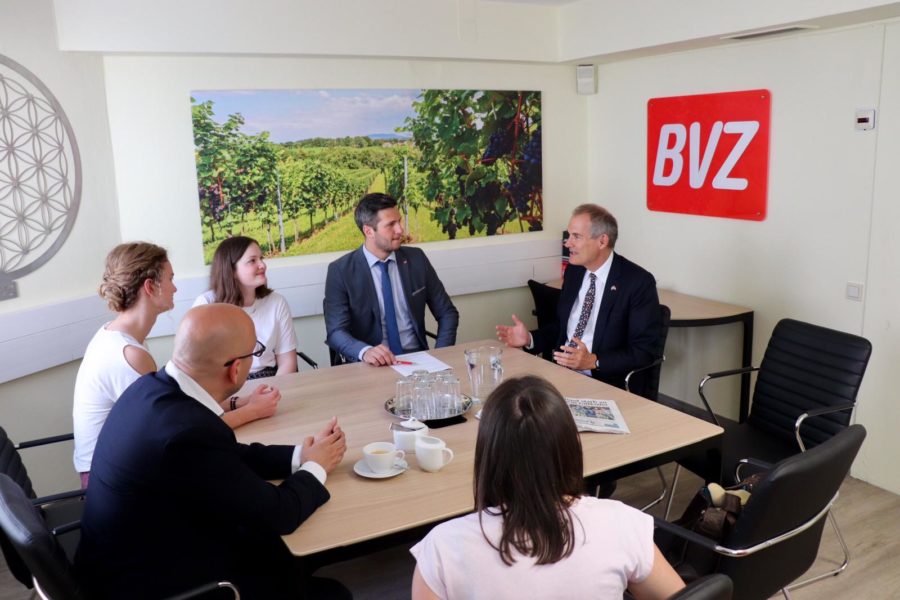
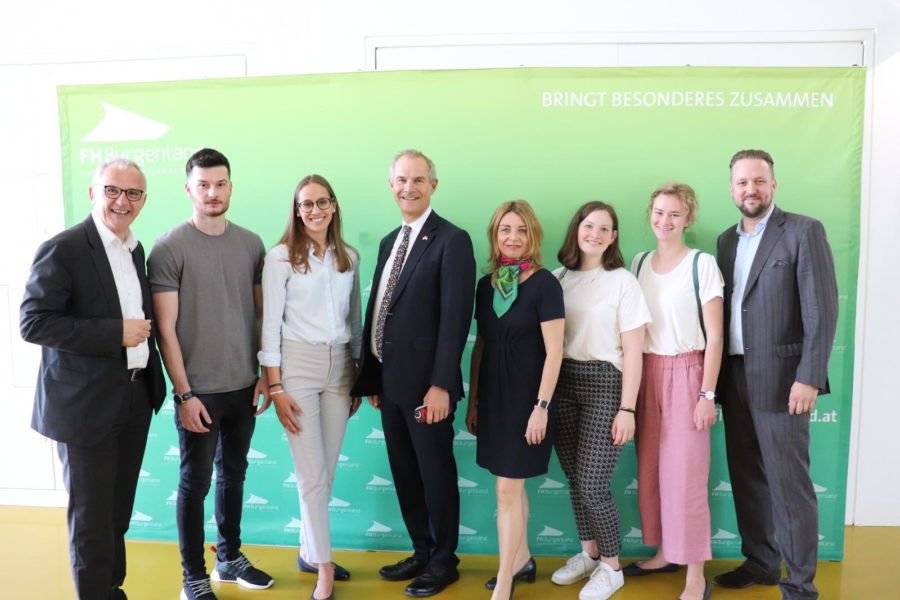
Finally, we moved on the the Landhaus (regional government) where Eli, Hannah and I met governor Hans-Peter Doskozil. I know Mr Doskozil from his previous job as Defence Minister; it was good to discuss opportunities to strengthen UK-Burgenland cooperation in education and other areas. The British Council is working closely with schools there. Our visit also generated some media coverage in Kleine Zeitung.
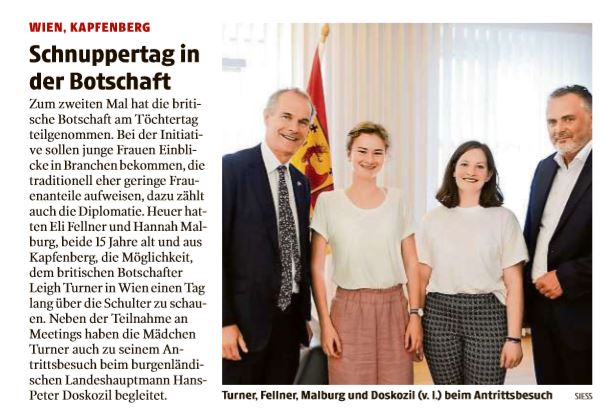
We arrived back in Vienna at around 6.30 p.m. I was grateful to Eli and Hannah for spending the day with me, and hope they found it rewarding. I found that being observed in my work for a day made me think hard about the way we do things, and why. We will aim take part in Töchtertag again in 2020.